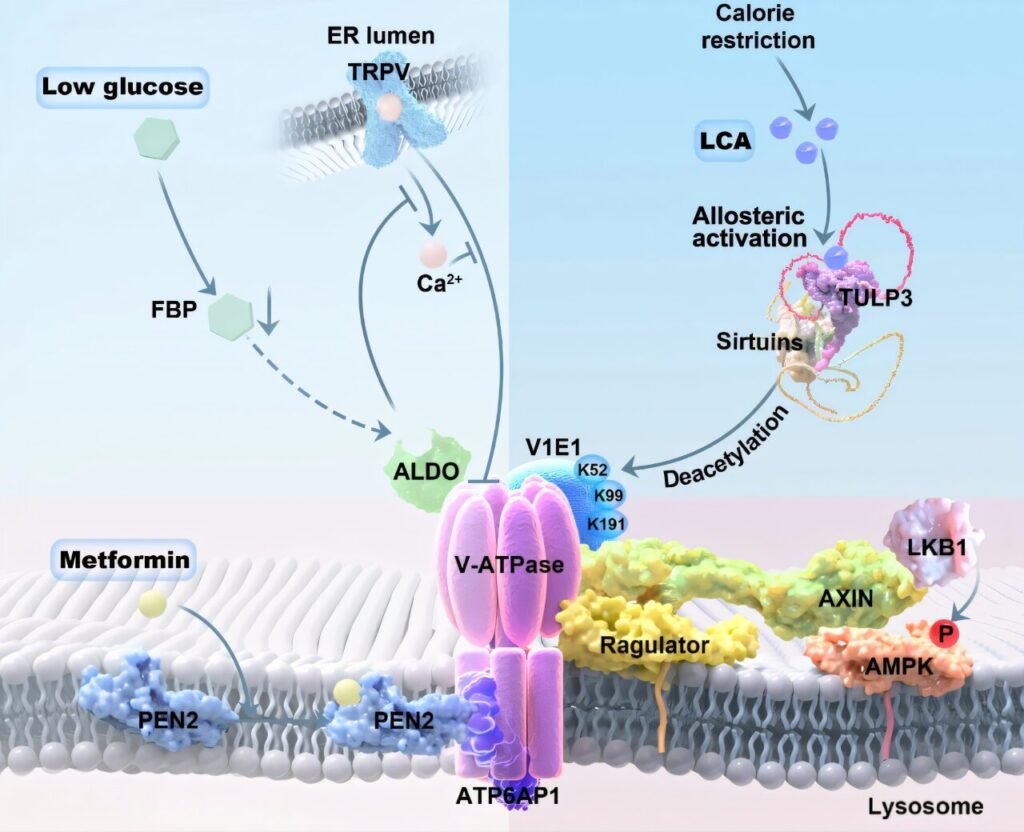A recent study conducted by a multi-institutional team from China and the U.S. has shed light on a potential molecule that could play a crucial role in slowing down the aging process in animals following a restricted diet. The findings of this research have been published in the prestigious journal, Nature.
The research, spearheaded by David Sinclair from Harvard Medical School, delves into the age-old question of whether adhering to a low-calorie diet can have health-promoting effects. While previous studies have indicated that restricted feeding can extend the lifespan of certain animals like fruit flies and nematodes, the challenge lies in extrapolating these findings to humans due to our longer lifespan.
In this particular study, the team honed in on lithocholic acid (LCA), a bile acid produced by gut bacteria. Initially considered a toxin, recent discoveries have revealed that low doses of LCA can confer health benefits. For instance, mice administered with LCA exhibited increased production of AMPK, a protein linked to slowing muscle atrophy.
The researchers closely monitored changes in metabolite levels in the gut of mice on a restricted diet, revealing hundreds of metabolites. Upon feeding mouse cells with these metabolites, LCA emerged as a primary driver of activation. Although the study did not find evidence of LCA extending lifespan in mice, it did uncover its potential role in conferring health benefits.
A subsequent investigation sought to unravel how LCA activates AMPK, pinpointing sirtuins as critical players in this process. Moving forward, the team is committed to further exploring the benefits of LCA in humans or identifying other metabolites that may be involved in the anti-aging effects observed in animals on restricted diets.
This groundbreaking research has opened up new avenues in understanding the intricate mechanisms underlying the aging process and the potential role of specific molecules in promoting health and longevity. As scientists continue to delve deeper into this realm, the quest for unlocking the secrets to aging gracefully and maintaining optimal health remains a compelling area of exploration.
For more details on this study, interested readers can refer to the following publications in Nature:
– Qi Qu et al, Lithocholic acid binds TULP3 to activate sirtuins and AMPK to slow down aging. DOI: 10.1038/s41586-024-08348-2
– Qi Qu et al, Lithocholic acid phenocopies anti-aging effects of calorie restriction. DOI: 10.1038/s41586-024-08329-5
– David A. Sinclair, A bile acid could explain how calorie restriction slows aging. DOI: 10.1038/d41586-024-04062-1
This research signifies a significant step forward in unraveling the mysteries of aging and holds promise for potential interventions that could enhance human health and well-being.


